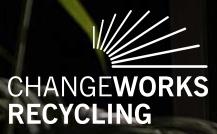 Add My Company
Add My Company
Sign In
How to reduce your commercial waste
28-01-2020

At Changeworks Recycling, we know the true expense of commercial waste – it could be costing your business (and the environment) more than you think.
Because it brings so many benefits, there’s really no reason your company shouldn’t look into cutting its commercial waste. Luckily, there are loads of practical steps you can take to get started with this – read on to find out why and how you should get started.
A nationwide problem
Collectively, the impact of commercial waste in Scotland is significant - Scottish businesses create 3.5 million tonnes annually.
In the past 12 months, we have collected 12,000 tonnes of material, around 4,800 of which was general waste. According to Resource Efficient Scotland, Scottish businesses spend an average of £7k on waste management per annum – that’s a huge slice of their outgoing costs!
What’s more shocking is that we’ve found that around 50% of the material we collect as business waste could and should have been recycled. These insights tell us that commercial waste management has become unnecessarily confusing and that the workforce is unclear about what can and can’t be recycled - this should not be the case!
Why should businesses try to reduce their commercial waste?
There are so many benefits that come alongside reducing your commercial waste.
The principal benefit is cost savings – waste is expensive to collect and process, while recycling is cheaper to manage because of the value in re-processing recyclable materials. By reducing the need for waste collections and upping recycling, businesses can significantly reduce their day-to-day operating costs.
Additional areas for improvement can also be identified once you start taking steps to minimise your commercial waste. As soon as you start to prioritise efficiencies in your waste management, you’ll find it easier to find more ways make positive changes.
Practical steps to sustainability
First of all, ensure there are recycling systems in place that enable all staff to get to grips with the key recyclable materials - food, glass, cardboard, paper, plastic bottles and metals.
Next, look at your procurement – is your business purchasing single-use items that could be avoided? A great example of this is disposable plastic cups in bars for events, which can be replaced by reusable plastic cups; this can actually be much cheaper than using disposable cups.
Understanding the key generators of waste in your business enables you to start taking action. For example, our client, Paper Tiger, worked hard to prevent the amount of waste they dealt with by asking their suppliers to make changes to streamline their packaging.
Businesses should also be wary of being blindsided by one material, such as plastic waste, without understanding how much of it they are producing. Many companies are so focused on getting rid of plastics that they end up ignoring key sections of their waste stream that are actually far more harmful, such as food waste.
Challenges of reducing your commercial waste
Of course, any change is going to come with challenges – check out some you might encounter and how you can deal with them:
Behaviour ingrained over years of bad practice with recycling can be hard to change, which is why communicating with staff is vital. Make sure you educate your staff effectively on your new initiative and why it’s important. We’ve got a series of handy resources available to download here that can help get the message across.
Navigating the conflicting information about recycling can be extremely confusing, with opposing opinions appearing in the news every day. We’ve written a blog that cuts through a lot of the most common recycling myths, which you can read here.
Purchasing your business supplies can be a minefield – many products claim to be green, but it’s not easy to evaluate if their claims ring true. There will always be advantages and disadvantages of certain products, so make sure you do your research before purchasing. Before switching suppliers, our customers often come to us asking if a particular product can be recycled – they then simply send in a sample and we’ll assess it to see if it’s actually recyclable.
It can be difficult explaining your decisions to your clients and customers. Often, consumers will like the sound of an idea without fully realising its implications – such as the case of compostable products, which have received a huge amount of press attention but aren’t always an eco-friendly choice. Using research and facts will help you to explain your decisions effectively.
Although there are challenges associated with reducing your commercial waste, the benefits far outweigh any of these potential issues. Becoming more efficient and cost-effective is instrumental in making any business successful, while being sustainable is vital in a world that is increasingly aware of its carbon footprint.
For more information on How to reduce your commercial waste talk to Changeworks Recycling
Enquire Now
List your company on FindTheNeedle.

